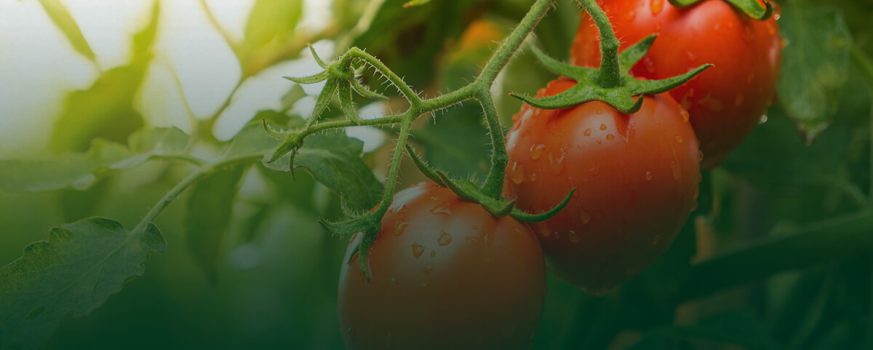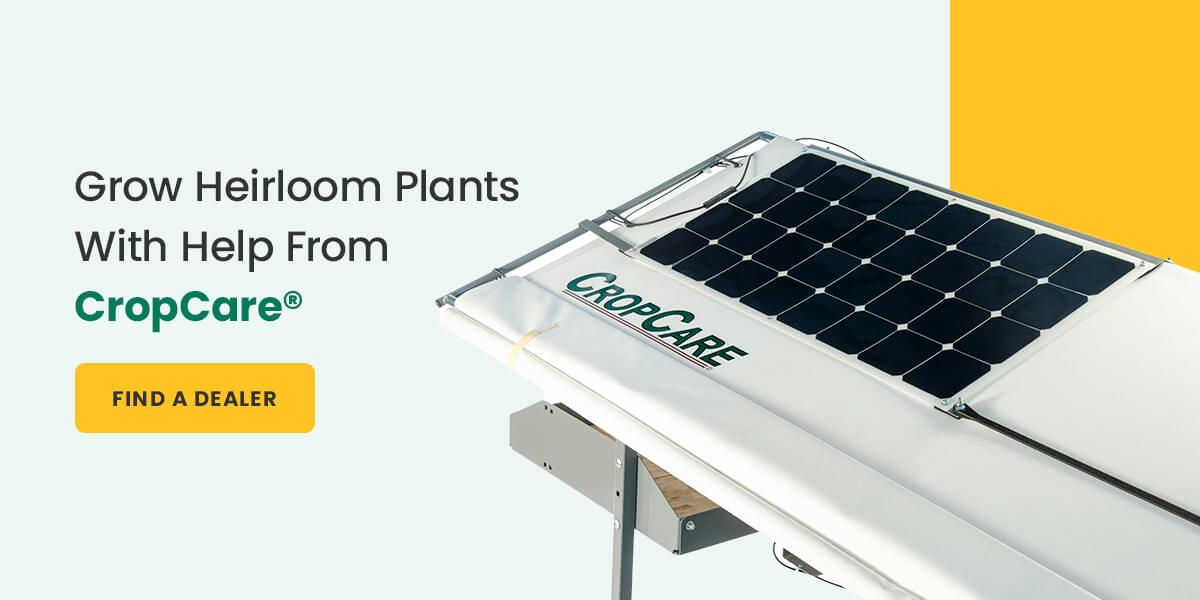
Every plant you grow offers you, your family or consumers something special. Whether it’s the color of a flower or the taste of your fruit and vegetables, you want to leave a positive experience or make your gardening worthwhile.
Choosing your seed type is one of the most critical factors in growing crops. While various seeds produce quality crops, some are richer in value, nutrition and history. Planting heirloom seeds can offer you valuable benefits for generations to come. Heirloom plants are also a top pick for their various nutritional benefits and sustainability, whether you are a small to mid-size farmer or a novice gardener.
Understanding the characteristics, benefits and challenges of heirloom plants before digging your patches and planting your seeds is essential.
What Makes a Plant an Heirloom?
You can classify plants that are passed down from generation to generation as heirloom plants. Plant varieties must generally be passed down for decades — typically at least 100 years or so — to be considered heirloom plants. Heirloom plants are open-pollinated by natural organisms and elements like birds, bees, insects or wind. While open pollination is a defining characteristic of heirloom plants, many self-pollinated plants are not considered heirloom plants.
Heirloom vegetable and fruit crops are preserved for their high quality, intense flavors and hardiness. You can grow various heirloom fruit and vegetable varieties, including the following popular picks:
- Tomatoes
- Berries
- Plums
- Carrots
- Spinach
- Peppers
- Lettuce
- Melons
- Beans
- Beets
- Pumpkin
- Broccoli
- Cabbage
- Squash
- Sweet potato
Heirloom flowers are also good choices for those who value tradition or high-quality growing. Some of consumers’ favorite heirloom flowers include varieties of zinnias, sunflowers, daisies, black-eyed Susans, nasturtiums and lobelias.
Are Heirloom Plants Better?
It depends on your production goals and purpose. Many people buy and grow heirloom plants today. The robustness, naturalness and intense taste are reasons for the heirloom plant’s popularity. Heirloom crops are non-GMO, and many people may prefer heirloom fruits and vegetables due to concerns about genetically modified foods.
Advantages of Growing Heirloom Plants
Growing heirloom plants offers seed preservation and the ability to pass down and sell plants with unique historical significance and flavors. Here are some benefits of growing heirloom plants:
Seed Preservation
You can save the seeds from heirloom plants and pass them down through generations. Keeping heirloom seeds helps you conserve the unique plant characteristics like their hardiness, crack resistance and taste. You can also share true-to-type plant varieties with friends, family and communities for years to come.
Exceptional Taste
Preserved heirloom seeds allow cultivators to grow flavorful fruits and vegetables. Modern or hybrid pollinated plants are less flavorful as many modern cultivators focus on production quantity over quality. Heirloom plant cultivation focuses on producing high-quality fruits and vegetables that offer exceptional tastes and unique appearances.
Rich History
Heirloom plants boast a rich history due to seed preservation. You can still find or grow heirloom plants, like hollyhock varieties, grown centuries ago worldwide and in Thomas Jefferson’s flower garden at Monticello. Various preserved plants like the hollyhock offer medicinal benefits and other unique characteristics, making them historical and helpful.
Grow in Various Climates
Heirloom plants are adaptable and can grow in various soil types and climates. You can grow multiple local heirloom seeds that suit your garden and environment. You can also grow heirloom seeds organically by following organic plant growing standards and methods.
Less Expensive
Heirloom seeds can be more affordable, as they are not genetically modified. It can also be more affordable to grow heirloom plant varieties because you can preserve your seeds and continue to grow them for generations. You get exceptional flavors and numerous nutritional benefits for less.
High Nutritional Value
While many hybrid plants are grown for uniformity and quantity, heirloom plants are grown to retain nutrients and increase eating quality. Heirloom plants’ open pollination and preservation methods can provide various nutrients and health benefits, depending on the specific produce.
Sustainable Food Production
Growing heirloom plant varieties abundant in biodiversity can offer sustainable food production for years. You can help ensure higher-food quality and availability in the future by recycling heirloom seeds. Cycling high-nutrient seed and plant varieties can also offer a solution to some instances of food scarcity.
Disadvantages of Growing Heirloom Plants
While heirloom plants offer sustainable food production and high-nutrition food sources, growing heirloom plants may come with some challenges. Here are some of the disadvantages of growing heirloom plants:
Susceptible to Diseases and Pests
Unlike hybrid or GMO seeds grown for uniformity and pest resistance, heirloom plants are grown to preserve flavor. They can be more susceptible to pests and diseases like verticillium wilt and blight. Growing heirloom plants requires extra care and may be challenging if harmful pests and diseases constantly overtake your plants.
Labor Intensive
You may spend a lot more time maintaining heirloom plants. Aside from ensuring crops are disease or pest-free, you might need to harvest plant varieties by hand, given their delicate nature. Heirloom plants can also grow quite tall and sparsely, requiring staking. Heirloom flowers and stalks may also require frequent pruning.
Less Uniformity
While hybrid plants offer uniformity, heirloom seeds can produce plants, fruits and vegetables of all sizes and shapes. Selling your heirloom plant products can be challenging if you have vegetable and fruit crops of all shapes and sizes, especially with numerous GMO and hybrid plant varieties available at shops.
Slower Development
Heirloom plant varieties can take longer to grow than hybrid and GMO seeds. Growing fruits, vegetables and flowers can be a timely process, especially if you experience poor weather conditions like flooding, which harms your crop growth and distribution if you sell heirlooms for consumption.
Cross-Pollination
You risk cross-pollination if your heirloom plant varieties grow in the same field or area. Cross-pollination of certain heirloom plant varieties can produce seeds that are not true-to-type, making it challenging to cycle and pass on those seeds.
Grow Heirloom Plants With Help From CropCare®
Growing heirloom plants is a delicate process that requires some time and care. You want to ensure you have the equipment to make growing your heirloom plants convenient. CropCare® offers quality vegetable farming equipment and sprayers to make your heirloom plant growing easy and enjoyable.
With over 70 years of industry experience, we can help you save time and money in gardening and crop care. We build durable equipment that helps you get the most out of your crops. Get free technical support with every CropCare® purchase.
Find a CropCare® dealer near you today!


![[List] advantages of growing heirloom plants](https://cropcareequipment.com/wp-content/uploads/2023/05/02-Advantages-of-growing-heirloom-plants.jpg)
